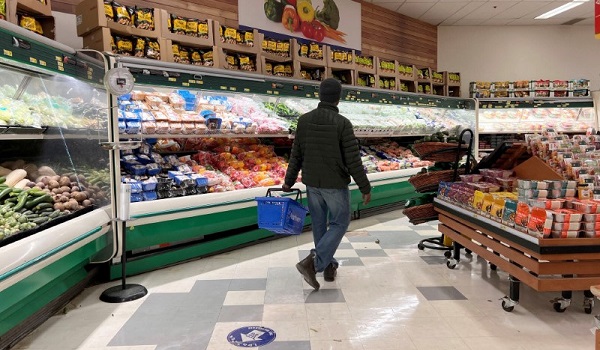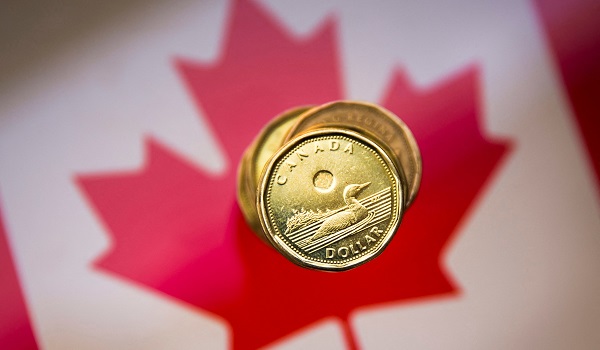Canada-U.S. trade war delayed by ‘at least 30 days’, says PM Trudeau
U.S. President Donald Trump’s tariffs and Canada’s retaliatory measures have been delayed by “at least 30 days,” Prime Minister Justin Trudeau announced Monday, a late-breaking and massive reprieve.
“I just had a good call with President Trump,” Trudeau said, detailing a list of further border security measures Canada intends to take in an effort to avoid an economically seismic trade war.
“Proposed tariffs will be paused for at least 30 days while we work together,” Trudeau said.
This news comes after Trudeau had two calls with U.S. President Donald Trump, one in the morning and then a follow-up mid-afternoon.
According to the prime minister, in addition to implementing the $1.3 billion border plan – which includes deploying additional personnel, drones, surveillance equipment and helicopters – Canada is making new commitments.
Trudeau said 10,000 frontline personnel “are and will be working on protecting the border,” Canada will be listing cartels as terrorists, and the federal government will appoint a “fentanyl czar.”
The prime minister also affirmed Canada will ensure there are 24/7 eyes on the border, and will follow through on a previous commitment to launch a cross-border “Strike Force to combat organized crime, fentanyl and money laundering.”
“I have also signed a new intelligence directive on organized crime and fentanyl and we will be backing it with $200 million,” Trudeau said.
Trump also confirmed the news in a Truth Social post, stating “Canada has agreed to ensure we have a secure northern border,” and as a result the tariffs he announced on Saturday “will be paused for a 30 day period to see whether or not a final economic deal with Canada can be structured.”
“As President, it is my responsibility to ensure the safety of ALL Americans, and I am doing just that. I am very pleased with this initial outcome,” Trump said.
Trump and Mexican President Claudia Sheinbaum secured a similar deal earlier on Monday, seeing the imposition of tariffs paused for one month after Mexico offered additional border resources.
As that played out, Canadians anxiously awaited to see whether this country could be spared, with just hours to go before Trump’s tariffs – 25 per cent on imports and 10 per cent on energy – and this country’s countermeasures on an initial $30 billion worth of U.S. goods were to come into effect.Public Safety Minister David McGuinty said he thinks the last-minute lobbying efforts he and his cabinet colleagues did in D.C. “broke through,” with Trump’s administration.
In an interview on CTV News Channel’s Power Play, McGuinty said Canada has been working to show Trump the federal government was taking his concerns seriously, for months, while acknowledging some pieces “came to fruition later on than we thought.”
“We’ve just stayed at this. We’ve always believed, I certainly always believed, we could find our way forward, and it looks like we have.”
Asked what underpins his degree of optimism after the roller coast of the last 48 hours, McGuinty said he’s not sure the president “saw all the facts and figures” before signing the order for tariffs.
‘Canada is very tough’: Trump midday
Speaking to reporters in the Oval Office between the calls, Trump said his first conversation with Trudeau was “good,” but he wasn’t sure if there was anything Canada could do to change his mind.
“I did ask (Trudeau) a couple of questions,” Trump said Monday in the Oval Office. “Canada is very tough. Canada is very, you know, we’re not treated well by Canada. And we have to be treated well.”
Trump said during their morning chat, he raised his concerns about U.S. banks operating in Canada– appearing to move the goalposts on his rationale for tariffs – on top of his persisting concerns about drugs flowing across the shared border, as well as the trade deficit.
“That’s one of many things and we talked about, and I think we’ll win most of the subjects,” Trump added.
There are 16 U.S.-based bank subsidiaries and branches with around CAD $113 billion in assets currently operating in Canada, according to the Canadian Bankers Association.
The Prime Minister’s Office confirmed the morning call – the two world leaders’ first since Trump returned to the White House – and said the pair discussed trade and the border, without providing any additional details on the conversation.
The U.S. president also restated his desire to see Canada become the “51st state,” adding that should that occur “there would be some pain, but not a lot.”
Trump also repeated his assertions of an unfair trade deficit with Canada.
“I look at some of the deals made. I say: ‘who the hell made these deals? They’re so bad.’”
The current Canada-United States-Mexico Agreement (CUSMA) free trade agreement was signed by Trump. And, federal data indicates when oil exports are excluded, the U.S. has a trade surplus with Canada.
Full-court press on U.S. media
As Canadians waited to see if a last-minute reprieve was possible, businesses readied “buy Canadian” campaigns, and provinces prepared to hit back by pulling U.S. products from shelves and cancelling cross-border contracts.
Some of those moves are already being retracted, including Ontario’s plans to remove American alcohol from the LCBO.
“Today’s going to be a crazy day. All hands on deck. Team Canada. Zero politics,” prominent auto sector spokesperson Flavio Volpe posted on social media Monday morning, noting his various outreach efforts planned.
Volpe is one of the members of Trudeau’s Canada-U.S. Relations Council, which the prime minister was set to meet with virtually on Monday. The panel was tapped to utilize their U.S. business and industry contacts to share the “Team Canada” message beyond lawmakers.
Among the prominent Canadians leveraging U.S. media contacts were Ontario Premier and provincial Progressive Conservative Leader Doug Ford, former deputy prime minister and current Chrystia Freeland, and fellow Liberal leadership hopeful Mark Carney.
All trying to make Canada’s case, Ford, Freeland, and Carney spoke to American audiences about how the trade war Trump had started was going to cost them.
“Inflation is going to happen in the U.S., it’s going to happen in Canada, interest rates will go up,” Ford said on Fox and Friends.
Freeland, speaking on MSNBC’s Morning Joe, said Canadians are “really angry,” and voiced support for Trudeau’s response, despite their recent differences.
“The prime minister has been great, and I have to tell you, the whole country is rallying behind him,” she said.
Carney on CNN, just minutes before the deal was declared, said the mood in Canada “has moved from one of confusion to a sense of betrayal, and now very much to a sense of resolve.”
‘No evidence’ border concessions possible a day ago
According to Green Party Leader Elizabeth May, just one day ago, Trudeau indicated to opposition party leaders in a call about Canada’s response plan and state of diplomatic affairs that “it had become increasingly clear that there was no evidence or further actions on border security that would make any difference.”
Finance and Intergovernmental Affairs Minister Dominic LeBlanc struck a similar tone in an interview on CTV’s Question Period on Sunday.
“I’m very pessimistic that by Tuesday we can get out,” LeBlanc said, citing the impression U.S. administration officials gave him, was that “that perhaps in March there’s a window again.”
Conservative Leader Pierre Poilievre – who posted a new video Monday morning backing the idea of breaking down interprovincial trade barriers in the face of the looming tariffs – also called for Canada to deploy an additional 2,000 agents as part of efforts to “fix” the border, ahead of Canada’s announced new measures.
Speaking to Trump’s concerns about fentanyl coming from Canada, Poilievre said the president “has wrongly used this risk as a rationale for tariffs,” but that doesn’t mean the government shouldn’t take additional steps to crack down on the illegal drug trade.
“The United States needs to do more on its border, and so do we. But frankly, it should not take a foreign leader to get our government to reverse its deadly policies that are killing our people,” Poilievre said.
Mexico’s Sheinbaum has agreed to send 10,000 troops to the U.S. border to help tackle drug trafficking.
In January, Trump signed an executive order aimed at listing cartels as foreign terrorist organizations, which could open the door to military strikes on cartel targets.
“The Cartels functionally control, through a campaign of assassination, terror, rape, and brute force nearly all illegal traffic across the southern border of the United States,” the executive order said.
Reacting to the late-breaking news that tariffs won’t be imposed, for now, Poilievre said Monday night that Conservatives are “relieved” but “this is not a time to sit back. We must urgently work to strengthen Canada’s economy and do everything we can to ensure these tariffs are never brought in.”
NDP Leader Jagmeet Singh echoed this sentiment in his post-pause reaction.
“The tariffs being paused is good news for Canada and Canadian workers. It means standing up to Donald Trump’s threats is working. But his threats won’t stop. We need to make our economy less reliant on unreliable allies,” Singh said.
This article was first reported by CTV News












